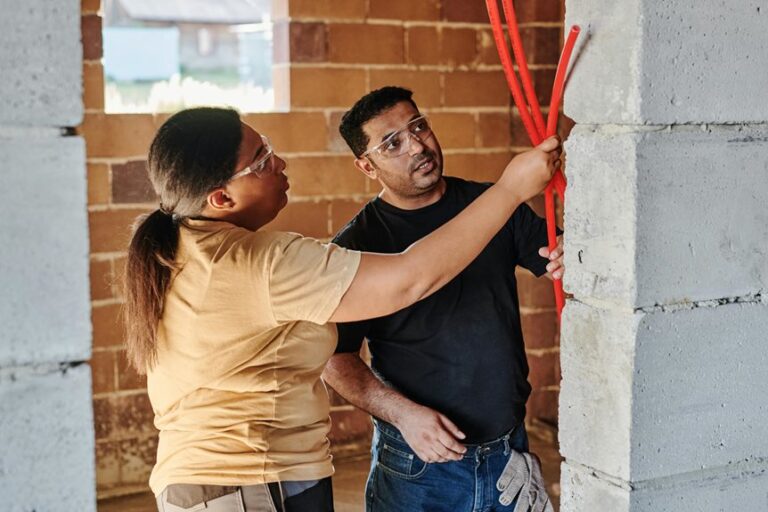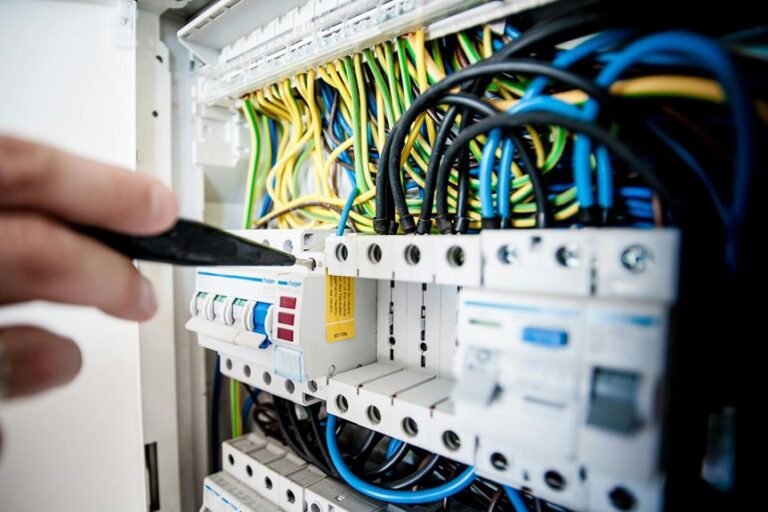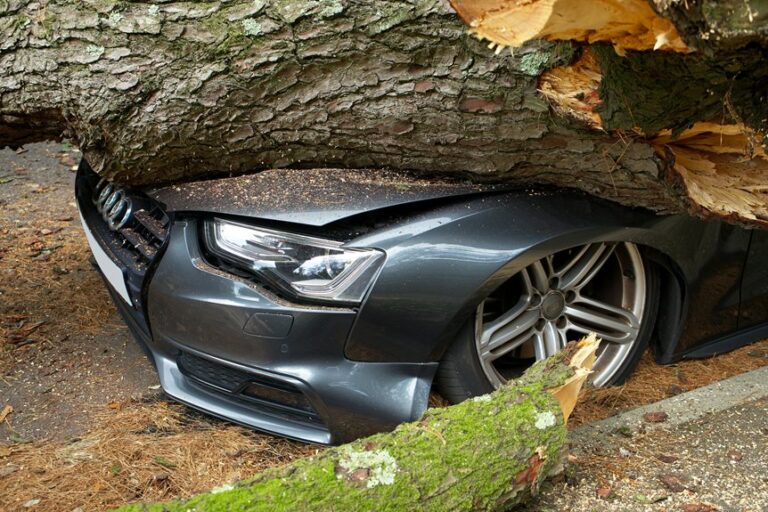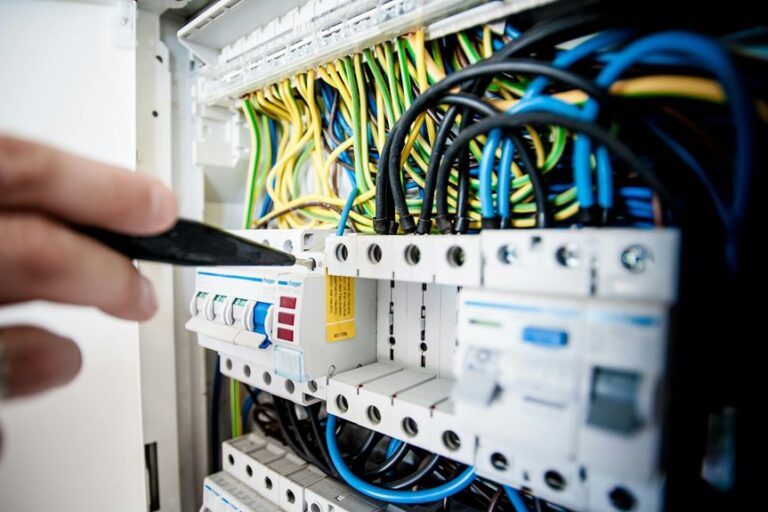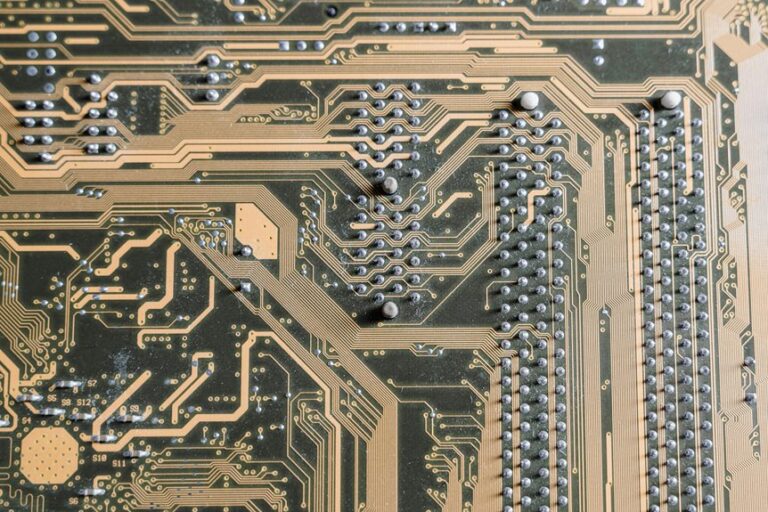You might think maintaining pool and spa electrical systems is as simple as plugging in a light, but the reality is far more complex. These systems are critical for safety and efficiency, powering everything from filtration to heating. Understanding the key components and adhering to safety regulations like the National Electrical Code is essential to avoid serious hazards. As you explore the nuances of installation best practices and common electrical issues, consider how these elements can impact your overall enjoyment and safety in your aquatic space.
Importance of Electrical Systems
When it comes to pool and spa safety, understanding the importance of electrical systems can't be overstated. These systems are essential for the operation and maintenance of your pool or spa, guaranteeing that water circulation, heating, and filtration functions properly.
Electrical systems power pumps, heaters, lighting, and other significant components, so any failure or malfunction can lead to serious safety hazards.
You need to recognize that electrical systems must be designed and installed according to specific codes and regulations. This guarantees the systems operate safely, reducing the risk of electrical shock or fire.
Regular inspections of wiring, connections, and equipment are significant, as they help identify potential issues before they escalate.
Moreover, it's imperative to utilize GFCI (Ground Fault Circuit Interrupter) outlets, as they provide an extra layer of safety by cutting off power in case of a fault.
By maintaining your electrical systems, you not only protect your investment but also guarantee a safe environment for family and friends.
Always consult a licensed electrician for installations and repairs, as their expertise is essential for adhering to safety standards and local regulations.
Key Components Explained
Understanding the key components of pool and spa electrical systems is fundamental for guaranteeing safety and functionality. You'll need to familiarize yourself with several significant elements to maintain an efficient setup.
First, the circuit breaker serves as an important safety device, protecting against overloads and short circuits. It's important to choose the right amperage based on your equipment's requirements.
Next, you'll encounter GFCI (Ground Fault Circuit Interrupter) outlets, which are essential for preventing electric shock in wet areas.
Then, consider the wiring, which must be rated for outdoor use and capable of handling the system's load. Conduit protects the wiring from environmental damage.
Additionally, the pump is a key component, responsible for circulating water while the heater maintains your desired temperature.
Lastly, don't overlook the control panel, which allows you to manage your equipment easily. This panel should be easily accessible, and its settings should be user-friendly.
Safety Regulations to Follow
When working with pool and spa electrical systems, you need to adhere to specific safety regulations to guarantee safe operation.
This includes understanding grounding and bonding practices, circuit breaker requirements, and GFCI installation guidelines.
Following these standards is essential to prevent electrical hazards and protect users.
Grounding and Bonding Practices
Grounding and bonding practices are essential for ensuring the safety of pool and spa electrical systems. Proper grounding protects you from electrical shocks by directing stray currents into the earth. Bonding connects various metal components, ensuring they share the same electrical potential, which minimizes shock hazards.
To effectively implement grounding and bonding, follow these key practices:
| Practice | Purpose | Notes |
|---|---|---|
| Grounding Electrode | Directs fault currents to the ground | Use a copper or galvanized steel rod |
| Equipotential Bonding | Reduces voltage differences between metal parts | Bond all metallic components, including ladders and rails |
| Ground Fault Protection | Detects ground faults and interrupts power | Install GFCI breakers for added safety |
Circuit Breaker Requirements
Safety is paramount in pool and spa electrical systems, making adherence to circuit breaker requirements essential. You must guarantee that circuit breakers are rated appropriately for the specific loads of your pool and spa equipment. Typically, breakers should be rated at a minimum of 15 or 20 amps for general lighting and receptacle circuits, while dedicated circuits for pumps or heaters may require 30 amps or more, depending on the manufacturer's specifications.
It's critical to use double-pole breakers for 240-volt equipment, guaranteeing proper protection against overloads and short circuits. Additionally, you should install breakers in easily accessible locations, facilitating quick disconnection in emergencies.
Regularly test the breakers to confirm they're functioning correctly; malfunctioning breakers can lead to unexpected equipment failures or hazards.
Always consult the National Electrical Code (NEC) and local building codes for specific requirements, as these regulations may vary by jurisdiction. Compliance with these standards not only enhances safety but also protects your investment in the pool or spa.
GFCI Installation Guidelines
Installing Ground Fault Circuit Interrupters (GFCIs) is essential in guaranteeing the safety of pool and spa electrical systems.
These devices help protect against electrical shock by cutting off power when they detect a ground fault. To guarantee a proper installation, follow these guidelines:
- Location: Install GFCIs within 10 to 20 feet of the pool or spa, where they can easily monitor electrical devices and receptacles.
- Type: Use GFCIs rated for outdoor use, as they're designed to withstand moisture and environmental conditions.
- Testing: Regularly test GFCIs using the built-in test button. Guarantee they trip within the required time frame, typically less than 25 milliseconds.
- Professional Installation: If you're unsure about installation, hire a qualified electrician. They'll guarantee compliance with local codes and standards.
Common Electrical Issues
When it comes to pool and spa electrical systems, you might encounter several common issues that can compromise safety and performance.
Faulty wiring, grounding problems, and equipment malfunctions are critical concerns that require immediate attention.
Identifying these issues early can prevent costly repairs and guarantee a safe swimming environment.
Faulty Wiring Concerns
Faulty wiring in pool and spa electrical systems can lead to significant safety hazards and operational issues. You need to be aware of common wiring concerns to prevent potential accidents and guarantee smooth operation. Here are four key issues to watch out for:
- Damaged Insulation: Worn or frayed insulation can expose wires, increasing the risk of short circuits and electrocution.
- Loose Connections: Loose wiring connections can cause intermittent power loss or overheating, which may lead to equipment failure.
- Overloaded Circuits: Exceeding the rated capacity of circuits can cause overheating and fires, jeopardizing your safety and the integrity of your equipment.
- Improper Wiring Practices: Using incorrect wire gauges or materials can create resistance and inefficiencies, leading to performance issues.
To mitigate these risks, it's essential to routinely inspect your electrical systems and address any concerns immediately.
If you notice any of these issues, consider consulting a qualified electrician who specializes in pool and spa systems.
Prioritizing safe wiring practices not only protects your investment but also guarantees a safer environment for everyone.
Grounding Problems
Grounding problems in pool and spa electrical systems can pose serious safety risks and lead to equipment malfunctions. Proper grounding is crucial for protecting both users and equipment from electrical faults. If you don't address grounding issues promptly, you may face dangerous situations, including electric shocks or equipment failures.
Here's a quick reference table to help you identify common grounding problems:
| Problem Type | Description |
|---|---|
| Poor Connections | Loose or corroded ground wires can interrupt grounding continuity. |
| Insufficient Grounding | Inadequate grounding can fail to divert excess electricity safely. |
| Ground Faults | Faulty equipment can create ground faults, risking shock hazards. |
| Corrosion Issues | Corroded connections can compromise grounding effectiveness. |
To mitigate these risks, regularly inspect your grounding system and guarantee all connections are secure and free from corrosion. Additionally, consult a qualified electrician if you suspect any grounding issues. By staying vigilant, you can help maintain a safe and efficient pool and spa environment.
Equipment Malfunctions
Over time, equipment malfunctions in pool and spa electrical systems can lead to significant safety hazards and operational inefficiencies.
It's vital to recognize common electrical issues early to prevent accidents and guarantee your system runs smoothly. Here are four prevalent problems you might encounter:
- Tripped Breakers: Frequent tripping can signal overloads or short circuits. Investigate the cause to prevent damage.
- Faulty Wiring: Damaged or loose connections can create sparks or overheating, posing serious fire risks. Regular inspections can catch these issues early.
- Inoperable Equipment: If your pump or heater isn't functioning, check for power supply issues or failing components. Ignoring these can lead to costly repairs.
- Corrosion: Exposure to moisture can corrode electrical components, leading to poor conductivity and system failures. Protecting connections is essential.
Installation Best Practices
When installing electrical systems for pools and spas, adhering to best practices is vital for safety and functionality. First, verify you comply with local codes and regulations, as these govern installation standards. Use a qualified electrician experienced in pool and spa systems to mitigate risks and guarantee proper connections.
Next, select the appropriate wire gauge and type for your specific application. For instance, use a minimum of 12 AWG wire for pool lights and confirm all wiring is suitable for wet environments. Additionally, you should utilize GFCI (Ground Fault Circuit Interrupter) breakers for all underwater lighting and equipment to prevent electrical shocks.
Proper grounding and bonding are significant. Bond all metallic components, including ladders and railings, to prevent voltage imbalances. Install a dedicated circuit for pool pumps and heaters to minimize overload risks.
Lastly, make certain your equipment is easily accessible for future maintenance. Position control panels and circuit breakers in dry, well-ventilated areas.
Following these installation best practices will enhance safety and efficiency, reducing the likelihood of malfunctions or hazards in your pool and spa environment.
Maintenance Tips for Longevity
Proper installation lays the groundwork for a reliable pool and spa electrical system, but ongoing maintenance is key to guaranteeing longevity and ideal performance.
By incorporating regular checks and maintenance routines, you can prevent potential issues and extend the life of your system. Here are four essential maintenance tips:
- Inspect Wiring Regularly: Check for any signs of wear, fraying, or damage in the wiring. Confirm that all connections are secure and corrosion-free.
- Test Ground Fault Circuit Interrupters (GFCIs): Monthly, test your GFCIs to make sure they're functioning properly. This safety feature protects against electrical shock and is vital for your pool or spa.
- Keep Equipment Clean: Regularly clean your electrical components, including pumps and heaters, to guarantee efficient operation. Dirt and debris can lead to overheating or other issues.
- Schedule Professional Inspections: At least once a year, have a licensed electrician inspect your electrical system. They can identify potential problems before they escalate, confirming your system remains safe and efficient.
Energy Efficiency Considerations
When optimizing your pool and spa electrical systems, consider incorporating energy-saving technologies to reduce operational costs.
Proper equipment sizing is essential, as it guarantees efficiency and prevents energy waste.
Energy-Saving Technologies
Energy-saving technologies in pool and spa electrical systems can considerably reduce operational costs while enhancing user experience. By implementing these technologies, you not only save money but also contribute to environmental sustainability.
Here are some key technologies to take into account:
- Variable Speed Pumps: These pumps adjust their speed based on your pool's needs, using markedly less energy compared to traditional single-speed pumps.
- LED Lighting: LED fixtures consume up to 80% less energy than incandescent lights, providing longer life and enhanced illumination for your pool or spa.
- Smart Controllers: Automated systems allow you to monitor and control energy usage remotely, optimizing heating, filtration, and lighting based on your schedule.
- Solar Heating: Utilizing solar panels for heating can drastically lower energy costs while extending your swimming season.
Incorporating these energy-saving technologies not only enhances the efficiency of your pool and spa systems but also improves your overall enjoyment.
Proper Equipment Sizing
Maximizing the efficiency of your pool and spa systems starts with the right equipment sizing. Selecting appropriately sized pumps, heaters, and filters is essential for ideal performance. An undersized pump can lead to inadequate water circulation, increasing strain on the system and driving up energy costs. Conversely, an oversized pump wastes energy and can cause excessive wear on components.
To determine the correct size for your equipment, consider your pool or spa's volume, surface area, and specific usage patterns. For pumps, aim for a flow rate that matches the manufacturer's recommendations, typically calculated in gallons per minute (GPM). Heaters should be sized based on the desired temperature rise and the volume of water they'll heat. Filters need to match the flow rate of the pump to operate efficiently.
Additionally, when you're looking at energy efficiency, consider variable-speed pumps. These allow you to adjust the flow rate based on your needs, markedly reducing energy consumption.
Proper equipment sizing not only enhances efficiency but also prolongs the lifespan of your pool and spa systems, saving you money on repairs and replacements in the long run.
Troubleshooting Electrical Problems
Electrical problems in pool and spa systems can disrupt your enjoyment and lead to safety hazards if not addressed promptly.
To effectively troubleshoot these issues, follow these key steps:
- Check the Power Supply: Verify that the circuit breaker hasn't tripped and that all fuses are intact. A simple reset may solve the problem.
- Inspect Connections: Look for loose or corroded wiring connections. Confirm all connectors are tight and clean to prevent power loss or shorts.
- Test Switches and Timers: Verify that all switches and timers are functioning correctly. A faulty switch can interrupt power flow, leading to equipment failures.
- Evaluate Equipment Performance: If your pump or heater isn't operating efficiently, check for signs of wear or malfunction. Regular maintenance can prevent breakdowns.
Addressing these troubleshooting steps can help you identify the root of the issue. Moreover, hiring expert electricians in Rancho Cucamonga ensures that any repairs meet safety standards and local codes.
If you can't resolve the problem yourself, it's crucial to consult a qualified electrician to guarantee safety and compliance with electrical codes.
Taking these actions will restore your pool or spa's functionality and keep your enjoyment uninterrupted.
Upgrading Your Electrical System
Upgrading your electrical system can greatly enhance the performance and safety of your pool and spa. An outdated electrical setup can lead to inefficiencies, increased energy costs, and safety hazards. By modernizing your system, you guarantee reliable operation and reduce the risk of electrical failures.
Reflect on the following benefits of upgrading:
| Benefit | Impact |
|---|---|
| Improved Efficiency | Reduced energy bills |
| Enhanced Safety | Lower risk of electrical shock |
| Increased Longevity | Prolonged lifespan of equipment |
When upgrading, think about installing a more robust breaker panel, dedicated circuits for pool equipment, and advanced GFCI protection. These improvements not only provide immediate benefits but also future-proof your setup against new technologies and increased energy demands.
Additionally, it's wise to contemplate energy-efficient equipment that can further lower operational costs. By investing in your electrical system now, you'll enjoy a safer, more enjoyable experience in your pool and spa for years to come. Remember, a well-functioning electrical system isn't just about convenience; it's essential for your safety and peace of mind.
Hiring a Qualified Electrician
After modernizing your electrical system, the next step is guaranteeing that the installation and maintenance are handled by a professional.
Hiring a qualified electrician is essential for safety and compliance with local codes. Here's what to take into account when selecting one:
- Licensing and Certification: Confirm your electrician holds the necessary licenses and certifications specific to pool and spa electrical work. This validates their expertise and adherence to regulations.
- Experience: Look for an electrician with specific experience in pool and spa installations. They should know the unique challenges associated with these systems.
- Insurance: Verify that the electrician has liability insurance. This protects you from potential liabilities in case of accidents or damages during the work.
- References and Reviews: Ask for references or check online reviews. Feedback from previous clients can give you insight into the electrician's reliability and quality of work.
Conclusion
In the domain of pool and spa electrical systems, ensuring safety and efficiency is paramount, akin to the careful balance of a well-tuned orchestra. By adhering to regulations, conducting regular inspections, and investing in energy-efficient upgrades, you not only protect your investment but also enhance your enjoyment. Remember, a qualified electrician is your ally in steering through this intricate field, helping you avoid the pitfalls that can lead to costly mistakes or safety hazards. Stay proactive and enjoy your oasis!



